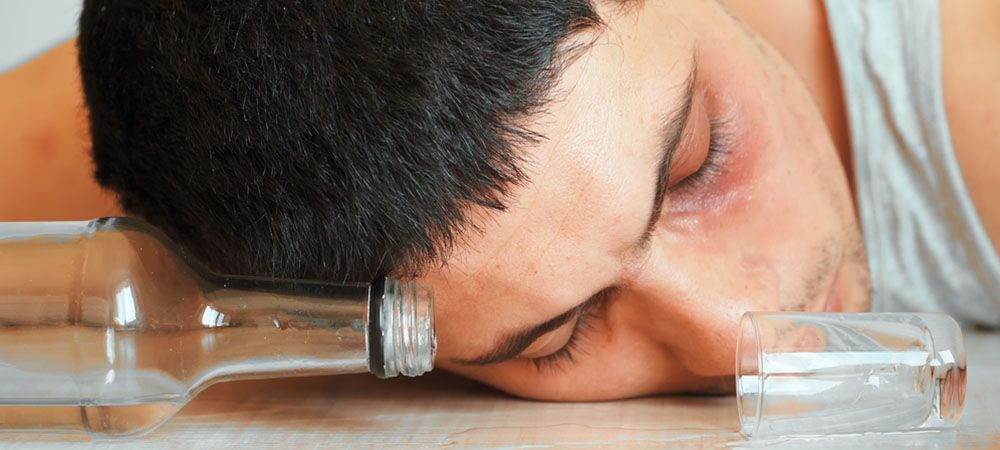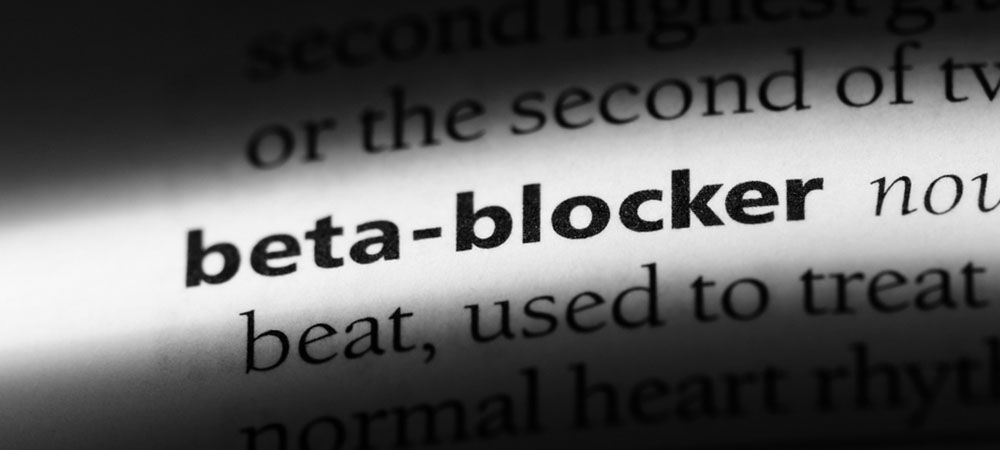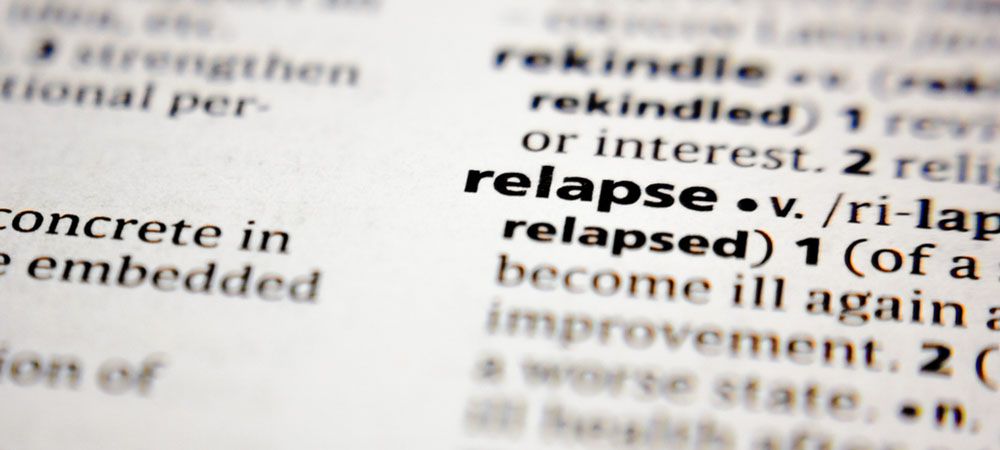
How Long Does Alcohol Withdrawal Take?
The timeline for alcohol withdrawal varies from one individual to another. It also depends on certain factors. For a person addicted to alcohol, stopping drinking should be a welcome idea. However, such a person must do it in a medically advisable manner.
Seeking medical advice is critical because abrupt withdrawal from alcohol can be life-threatening. Alcohol withdrawal symptoms range in severity. While some are mild, others are very severe. The latter category can become so intense and cause a long-term damage, illness, or death.
In this article, you will gain more knowledge about how long alcohol withdrawal takes. You will also learn about the symptoms of withdrawing from alcohol and how to treat them.
What is the Timeline for Alcohol Withdrawal?
The duration of alcohol withdrawal varies for each person. It also depends on factors such as how long you drink and the average quantity of alcohol consumed. The presence of physical or mental health issues is also a factor. Generally speaking, a timeline for alcohol withdrawal looks like this:
Stage 1
This starts six to twelve hours after your last drink. The symptoms you will experience at this stage include nausea, anxiety, and headaches. You will also experience low appetite, insomnia, and stomach pains.
Stage 2
This usually takes place 12 to 24 hours after the last period of alcohol consumption. Alcohol withdrawal symptoms may increase to include hallucinations.
Stage 3
From 24 hours to 72 hours, the symptoms will begin to wear off. However, protracted symptoms can stay for more extended periods, running into weeks. Between 24-48 hours after drinking, you will be prone to seizures.
From 48-72 hours, you may also experience fever, sweating, high blood pressure, and confusion. At this stage, you may also have delirium tremens accompanied by auditory hallucinations. This can sometimes lead to death.
The symptoms of withdrawal begin to decrease in intensity after 5-7 days. Some side effects, especially psychological side effects, may continue after the first week.
Protracted Alcohol Withdrawal
This is a condition that one may experience after severe withdrawal from drinking. It usually lasts for about a year. Symptoms include anxiety, tremors, high blood pressure, insomnia, increased heart rate, and respiratory issues.
Some persons may experience other symptoms like decreased energy and metabolism. They may also experience fatigue and mental weariness.
What are the Symptoms of Alcohol Withdrawal?
Based on the timeline, you now have an idea of what to expect from alcohol withdrawal. However, you must note that these symptoms are not the same for every person.
Alcohol withdrawal symptoms usually change in intensity within a short time. Hence, there’s a need to remain careful all the time.
You can classify alcohol symptoms into mild, moderate, and severe symptoms. Mild symptoms include:
- Mild headaches
- Gloominess
- Mild tremors
- Mild Itching
- Nausea
- Light and sound intensity
Moderate symptoms of alcohol withdrawal include:
- Frequent itching and nausea
- Restlessness
- Anxiety and sweating
- Burning sensation or numb feeling
- Poor mental alertness
- Being uncomfortable around bright lights
- Visible tremor when you stretch your hands out
Severe alcohol withdrawal symptoms include:
- Hallucinations
- Severe tremor
- Constant nausea and vomiting
- Profuse sweating
- Acute Confusion
Withdrawal delirium or Delirium tremens (DTs) is an extreme symptom of alcohol withdrawal. It can cause death. One of the signs of this condition is a change in your consciousness level. It is more common in older persons with a history of heavy alcohol consumption. If your liver functions poorly and you experience severe withdrawal symptoms, you may be prone to DTs.
Since it is a Central Nervous System (CNS) depressant, an abrupt stop to alcohol consumption is dangerous. This is because when you consume alcohol regularly, your CNS gets used to the feeling. Quitting abruptly will lead to CNS excitability, causing seizures, a DTs symptom. With that in mind, it is essential to seek professional help when withdrawing from alcohol.
Related article: Why You Should Not Attempt Alcohol Withdrawal At Home
What is the Treatment for Alcohol Withdrawal?
Most of the symptoms that come with alcohol withdrawal usually fade off after five days. However, some of these symptoms remain for more extended periods. It is best to treat these kinds of symptoms with the help of professional alcohol addiction treatment services.
Treatment at such centers is much safer. Also, it helps you manage potentially harmful symptoms you may experience. A good alcohol addiction treatment centre will monitor you at each stage of the withdrawal process. Also, they will ensure you remain in great condition with supportive therapy.
This therapy gets you set to return to everyday life. It also trains you on how to manage drinking urges. A doctor will tell you the treatment best for you and guide you through it. However, treatment doesn’t reduce the duration of your withdrawal timeline.
Detoxification is the first step to alcohol withdrawal treatment. It ensures you do not have severe symptoms. Alcohol addiction treatment aims to ease the patient’s withdrawal symptoms. It also gives patients the support they need to navigate the phase.
Some typical alcohol withdrawal treatments include:
- Observing the patients to know the degree of their symptoms
- Use of anti-anxiety drugs. Benzodiazepine is an example of such medication. It helps you reduce the anxiety you may experience during withdrawal.
- Use of anti-seizure drugs like Depakote to prevent seizures.
- Use of Beta-blockers, which help to slow the heart rate. These blockers also reduce the tremors you may experience. Sometimes, beta-blockers help patients to curb their urge for alcohol.
Detoxifying and withdrawing from alcohol can be a strenuous exercise. It exhausts you physically, mentally, and emotionally. This is why you are best in the hands of alcohol addiction treatment centers.
Should You Do Alcohol Withdrawal at Home?
Many people wonder if they can perform alcohol withdrawal from the comfort of their homes. Depending on the severity of your symptoms, you can do it home. However, you must do it with the supervision of a medical professional. Never practice alcohol withdrawal without the supervision of a professional.
However, when you have to manage mild withdrawal symptoms from home, ensure you keep to the appropriate medications. Always check-in with your supervising physician when you need to. Don’t leave anything to chance.
The case is different when you show the risk of severe symptoms or have such symptoms. Then, it is always best to manage your treatment at an alcohol addiction treatment center. For those wondering how long does alcohol withdrawal take, they should also know they are prone to severe health consequences. Hence, staying within the walls of a facility to manage your recovery process is key to your safety.
Generally speaking, it is always best to undergo your alcohol withdrawal at a treatment center. Most times, early recovery patients undergo their detoxification at treatment services. After the detoxification process, they continue with the rest of their treatment from home. On the other hand, patients with protracted withdrawal symptoms undergo the full process at treatment facilities.
Other Potential Symptoms of Alcohol Withdrawal
We have been able to highlight the symptoms and timeline for alcohol withdrawal. However, there are other potential dangers associated with alcohol withdrawal. These often-overlooked dangers can do more damage over time.
The first one is the potential addiction to treatment pills. We have discussed some of the medicines used to treat alcohol withdrawal. Regardless, it is important to note that said pills can open ways to new addictions.
We will discuss these pills in detail and you will learn of their potential addictive properties. Ensure to always get prescribed pills from certified pharmacists. Also, learn about the potential addictive properties of any alcohol treatment pills before using them.
Potential Addictive Treatment Pills
Here’s what you need to know:
Benzodiazepines
These drugs are known for their calming effects. They are popular sedatives that are used for alcohol withdrawal treatment. They help to reduce the probability of seizures during alcohol withdrawal.
However, excessive use of this drug can lead to serious health problems. Due to its suppressive nature, you may become dependent on it. Here are some of the side effects of using benzodiazepines.
- Blurred Vision
- Feebleness
- Dizziness
- Poor decision making
- Random mood shifts
- Risk-taking habits, such as driving under the influence
Neuroleptic medications
These drugs help in depressing nervous system activity in the body. This is especially beneficial for alcohol withdrawal as it relaxes the nervous system and minimizes stress.
However, care must be taken while you use this drug. Abuse of these medications can lead to metabolic imbalance and severe weight gain. Other side effects may include
- Nausea
- Vomiting
- Diarrhea
- Stomach pain
- Dizziness
- Epilepsy
Beta-Blockers
These are known to be one of the safest options for combating alcohol withdrawal. They prepare you for what to expect during alcohol withdrawal like high blood pressure. This beta-blockers help regulate the heart by blocking adrenaline from flooding the heart.
However, regular and medicated intake must be considered. Excessive use of these beta-blockers can lead to a very slow and irregular heartbeat. Other potential symptoms of beta-blockers abuse are
- Tiredness
- Cold feet and hands
- Migraines
- Lightheadedness
- Depression
- Breath shortages
- Constipation
In the end, you are responsible for the number of drugs you take in. Treatment pills are great for mitigating alcohol withdrawal. But you need to bear in mind not to switch one addiction for the other.
Ensure to consult a medical professional before using any treatment pills. Determine how long the alcohol withdrawal takes on your first consultation with a licensed addiction treatment expert. This will help you navigate any potential pitfalls of drug abuse.
Relapse in Alcohol Withdrawal
Picture this scenario. You have not tasted alcohol in weeks. You have been taking your prescribed medicines. Your withdrawal symptoms are reducing. Then it happens, you decide to have a sip of alcohol and throw your recovery out the window.
This is called a relapse and it is just as damaging as alcohol withdrawal symptoms. It is important to note that a relapse is not a death sentence. However, it is important to understand and know how to manage it.
Relapse is when a person who for some time has abstained from drinking, starts to drink again. Even if it is just one drink, it is called a relapse.
Especially, if the person is sober and has been abstaining from drinking for any amount of time. To define other habits and health problems, the word may also be used.
Relapse is considered a part of the rehabilitation process for alcohol withdrawal. While preventing relapse is a recovery objective, it is not rare to undergo such incidents. For the sake of remaining sober, but also for wellbeing, it is important to prevent relapsing. As it can lead to a binge or even life-threatening overdose, relapsing can be risky.
Factors that can Cause Relapse in Alcohol Withdrawal
For a variety of reasons that may differ by person, relapse may occur. However, certain general factors make it more probable. These are some of what to expect during alcohol withdrawal.
For example, without health intervention or even assistance from family and friends, you can easily relapse. Wanting to get sober on your own is a long uphill struggle.
Hence, you are far more likely to suffer relapses following multiple times of remission. Here are several other factors that induce or lead to relapses in drinking:
Quitting Cold Turkey
When it comes to alcohol withdrawal, stopping suddenly is not the best way. This can give a shock to your system that is already used to the substance.
Uncomfortable symptoms are likely to arise immediately. This can make you return to drinking to curb the discomfort.
Anxiety and Stress
Withdrawal-related anxiety and stress have been studied in persons seeking to abstain from alcohol. Changes to the brain caused by intense and sustained drinking can cause an elevated stress response. This is a factor in relapse, making alcohol withdrawal treatment difficult.
Untreated Mental Health Issues
Experiencing difficult circumstances in life or experiencing mental disease symptoms may cause a relapse. Ensure that any other mental health issues you may have are also treated along with your alcohol withdrawal.
Personal Triggers
Person triggers also function as signs that contribute to relapse. This could involve a specific colleague or a certain pub. Your feeling or mood also factors in and can return you to drinking actively. Make sure to know your triggers and avoid them frequently.
Going Through a Cycle of Relapses
While determining how long alcohol withdrawal takes, ensure you are not caught in a cycle. Passing through several periods of remission and relapse makes a person more likely to relapse.
Exposure to Alcohol
Alcohol exposure is a significant contributor to relapse. To use alcohol as a cue to drink more, addiction conditions the brain. For this cause, hearing, smelling, or tasting a tiny amount will lead to a relapse.
Hence, you need to ensure that you keep your home alcohol proof. Do well to let your friends know about your situation. This will make them create an alcohol-free environment for you even when you visit them.
Preventing a Relapse During Alcohol Withdrawal
Relapse prevention is a procedure and a part of the treatment for alcohol withdrawal. Knowing the truth about relapse and how frequent it comes is important. You need to also implore practical techniques to consciously attempt to avoid it.
For long-term success, enroll in an alcohol withdrawal treatment center. In relapse prevention, these are some major methods used:
- Identifying reasons for drinking by a person
- Planning how best to prevent triggers
- Learning to understand the signs that a relapse can occur and implementing strategies to avoid it
- Learning effective coping skills when a trigger is experienced or when a high-risk scenario is inevitable
- Setting a proper timeline for alcohol withdrawal to prepare the body for symptoms.
- Having a clear strategy on what to do if there is a relapse
- When required, bringing the relapse strategy into effect
- Treatment and service preparation after placement in a residential treatment center
- Improving the mindset and confidence of a person in his or her abilities to avoid a relapse
- Developing a balanced overall lifestyle with adaptations that lower the likelihood of relapsing
- Learning and using strategies for anxiety control to cope with difficult circumstances and negative feelings
- Employing techniques of studying and exercising to control the temptation to drink
- Developing and developing safe new hobbies and alcohol substitution behaviours
By implementing any of these preventive methods, you will be minimizing your alcohol withdrawal. You will also be reducing your chances of a relapse.
FAQs about Alcohol Withdrawal
Below are answers to some commonly asked questions about alcohol withdrawal.
What Happens When You Quit Alcohol?
When you decide to stop consuming alcohol abruptly, it leads to alcohol withdrawal symptoms. These symptoms can be severe and lead to complications if you don’t manage them properly.
How Long Does Alcohol Withdrawal Take?
The duration of alcohol withdrawal depends on an individual. It also depends on the quantity of alcohol you consume and how long you consume it.
The recovery process usually takes three stages, depending on the symptoms you exhibit. These stages may last between 6-72 hours. For persons showing protracted symptoms, recovery will take days, weeks, months, and even years.
How Best Do I Manage My Alcohol Withdrawal Treatment?
It is best to treat withdrawal symptoms in alcohol addiction treatment centers. Even if you want to undergo your recovery process at home, do so under a professional’s supervision. Whether you recover at home or a center is dependent on the severity of your symptoms.
Should I Avoid All Treatment Pills When in Alcohol Withdrawal?
No, there are some very effective treatment pills to use. The important thing is to use them under supervision to prevent new addictions.
Are There Any Non-Addictive Treatment Pills?
Beta-blockers have been known to be typical non-addictive. Regardless, caution needs to be taken when using them
Is Relapse Inevitable?
It may not be inevitable, but it can be managed greatly once you notice it on time
Is There a Treatment For Relapse At All?
There is no miracle cure for relapse. However, you can condition your body to resist alcohol for so long. This can lead to your body adapting to the alcohol withdrawal.
Are There Any Centers For Alcohol Withdrawal Treatment in Canada?
Yes. There are a great number of treatment facilities in Canada that can help with alcohol withdrawal.
Conclusion
You now have better information about alcohol withdrawal. You also have a better understanding of the symptoms and treatment. When withdrawing from alcohol, ensure that you have the supervision of professionals. It is always best to undergo your withdrawal process at alcohol addiction treatment centers.
If you want the best treatment tailored to your needs, then look no further. Try our addiction treatment services for the best treatment experience you can get.
By now, you are also familiar with other means of easing your alcohol withdrawal. Ensure that you don’t self medicate with treatment pills. Always consult a professional at any reputable alcohol withdrawal center.
Relapse is not the end. There are many ways to manage it and keep your body on the road to recovery. Make sure to go over the various methods of relapse prevention.
Contact 1000 Islands Addiction Rehab & Treatment Centre for addiction treatment programs.
Related article: How Alcohol Abuse Affects Family Relationships And Friendships







